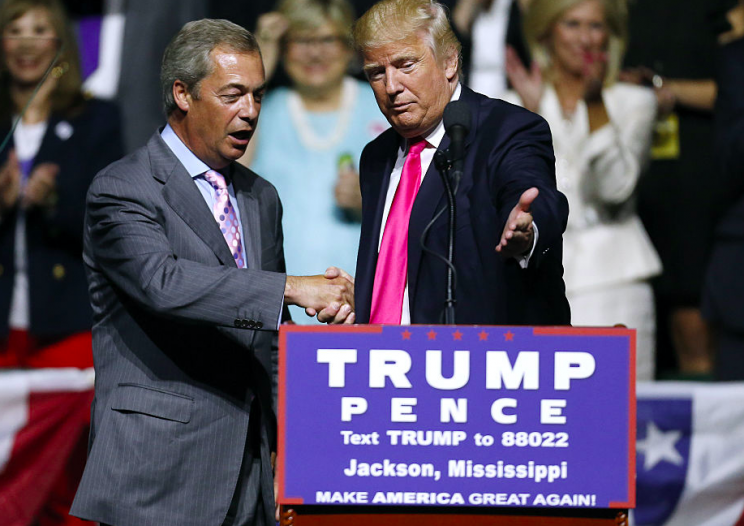Oxford Dictionaries names ‘post-truth’ the word of the year

After a year that has seen Brexit triumph after some dubious claims from the ‘Leave’ camp, and Donald Trump elected President after a less-than truthful campaign, a spike in the use of the term ‘post-truth’ has seen it named Oxford Dictionaries’ word of the year.
The word has been in existence for more than two decades but a rise in its demand coincided with the EU referendum and the US presidential race.
The adjective describes circumstances where emotions and personal beliefs are more influential than facts, and its usage increased by a staggering 2,000% since last year, according to research.
Post-truth topped a shortlist of terms to the title, including “Brexiteer”, a supporter of the UK’s EU exit, and “hygge”, a cosiness associated with contentment in Danish culture.
Casper Grathwohl, president of Oxford Dictionaries, said: ‘It’s not surprising that our choice reflects a year dominated by highly-charged political and social discourse.

“Fuelled by the rise of social media as a news source and a growing distrust of facts offered up by the establishment, ‘post-truth’ as a concept has been finding its linguistic footing for some time.
“We first saw the frequency really spike this year in June with buzz over the Brexit vote and again in July when Donald Trump secured the Republican presidential nomination.”
Mr Grathwohl added: “Given that usage of the term hasn’t shown any signs of slowing down, I wouldn’t be surprised if ‘post-truth’ becomes one of the defining words of our time.”
Previous winners include “omnishambles” in 2012, “big society” in 2010 and last year’s hotly-debated “face with tears of joy” emoji.

The official dictionary of “post-truth” is: “Relating to or denoting circumstances in which objective facts are less influential in shaping public opinion than appeals to emotion and personal belief.”
It will now be added to OxfordDictionaries.com.
The rest of the shortlist for the word of the year:
Adulting: The practice of behaving in a way characteristic of a responsible adult, especially the accomplishment of mundane but necessary tasks.
Alt-right: An ideological grouping associated with extreme conservative or reactionary viewpoints, characterised by a rejection of mainstream politics and by the use of online media to disseminate deliberately controversial content.
Brexiteer: A person who is in favour of the United Kingdom withdrawing from the European Union.
Chatbot: A computer program designed to simulate conversation with human users, especially over the internet.
Coulrophobia: Extreme or irrational fear of clowns.
Glass cliff: Used with reference to a situation in which a woman or member of a minority group ascends to a leadership position in challenging circumstances where the risk of failure is high.
Hygge: A quality of cosiness and comfortable conviviality that engenders a feeling of contentment or wellbeing (regarded as a defining characteristic of Danish culture).
Latinx: A person of Latin American origin or descent (used as a gender-neutral or non-binary alternative to Latino or Latina).
Woke: [Originally in African-American usage] Alert to injustice in society, especially racism.
Top pic: Rex

 Yahoo News
Yahoo News 


